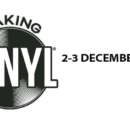Serious About Your Music Career? Treat it Like a Business
When I meet a songwriter who is serious about building their music career, I tell them right from the start that they have to treat it like a business if it’s going to work.
You have started your own company creating songs, which makes you the Chief Executive Officer. Your work ethic and ability to communicate with others about your business is vital, as is your ability to manage your creative and personal life. It is always very important to me that my clients take care of their business. I guide them to be organized in registering their songs, wise about who they hire to be on their team and educated about the contracts they sign. How you interact and conduct yourself with everyone, from your team to your cowriters and music executives, will be a big deciding factor when it comes to whether or not they will want to work with you.
By Judy Stakee
Here are three steps you can put in place to become the CEO of your company.
1. Create a vision and a mission statement for your company.
A vision statement is the reason why you get up every day and do what you do. A mission statement is how you plan to get there. Having both in place will help you set and reach your goals.
2. Surround yourself with a great team of experts who can help guide you in all areas of business, including the creative and personal aspects.
If you can’t afford your “dream team” at first, supplement it with family and friends. Leverage your connections. Maybe you have a family friend who is a lawyer, a significant other who’s well versed in social media or a sibling willing to sell merchandise at your shows.
One of the benefits I had while working within corporate America was having a team of professionals at my disposal to help me do my job. When I was at Warner/Chappell Music, I had a legal team, a film and TV department, IT services, a royalties department, production facilities and a marketing team at my fingertips at all times.
But when I started my own company, I had only myself to rely on. That all changed once I began building my own team, starting with one part-time assistant, then adding an intern and finally forming a full-service team made up of interns, a mentorship program, part-timers and consultants who are all, I might add, budding songwriters. I am proud of this talented group of amazing people that have been with me as I built my business from the ground up, giving me support in structuring my company. In turn, I am able to guide and develop the talents of the people on my team.
3. Become a leader.
Decide what the word “leader” means to you, and then live and lead by example. My definition of a good leader is someone who says to their team, “How do I help you do your job better?”
Throughout the years, I have worked with great leaders; however, I certainly had a few who did not share their visions effectively with the rest of the team, and it became increasingly difficult to follow them as a leader, since we had no idea where they were going! Now, as the leader of my own company, I have a team in place that adheres to my vision and mission statement, and we all have a clear picture of where we are going. I hold weekly meetings with my staff, allowing the time and space necessary to exchange the ideas and information that will help us all to form a unified front and do each of our jobs better.
I also am very aware that my leading style can differ, depending on whether I am working one-on-one with a writer or guiding a big group.
My whole career has been focused on leading songwriters in their careers, and one way I do this is by challenging them to push beyond their comfort zones.
In the late ‘90s I produced a writers camp seven years in a row, taking 12 writers, from all over the world and with various musical backgrounds, away for a week to write under different circumstances and with different co-writers. I purposely looked for ways to take them away from their everyday routines.
With the help of one head of production, one assistant and a studio engineer, I chose five houses grouped close together in Lake Arrowhead, CA, organized travel, stocked all of the houses with food and prepared nightly dinners at the house where I was staying, which we dubbed “the Grand Hall.”
Each day, I combined three different writers who then had the day to write and create a simple demo of a song. I would go from house to house, critiquing and guiding them along the way.
At dinnertime, I would put questions to the group to encourage discussion; one night, for example, I would ask them which performing rights society they preferred, and you should have seen the room light up when they gave their responses! After dinner, they would all sit around the fire and sing and tell stories to each other, which was always my favorite part.
This experience allowed each songwriter to use their skills to forge new relationships, process new information and create something new under a defined time limit. Following this process allowed me the time and space to witness how the songwriters under my guidance handled these new tools, so that I could then guide them to develop even further.
The concept of doing something you don’t usually do, or something you are afraid of doing, pushes you through the threshold created by the tension of “doing or not doing.” That doorway is what leads to your development, and as I personally can vouch, sometimes we all need a little push to get through that doorway to go where we need to go. When I lead, I always make sure that the person I am guiding knows that it is worth it.
ABOUT THE AUTHOR
JUDY STAKEE is an accomplished songwriting coach with over 30 years of experience in the industry, coaching artists such as Katy Perry and Sheryl Crow. She’s also the author of the book The Songwriter’s Survival Guide. See judystakee.com for more information.













